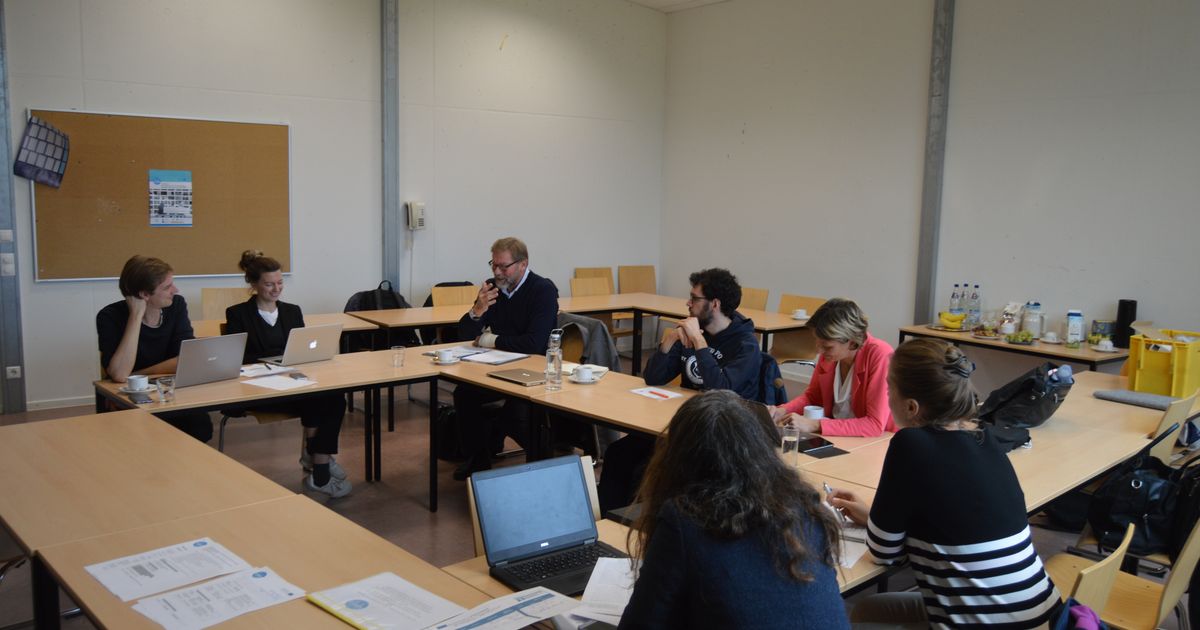
FUEN Vice President Gösta Toft participated in CODES-Workshop
29.10.2018FUEN Vice President Gösta Toft participated in a workshop of the CODES project at the Europa-Universität Flensburg on Monday, 29 October 2018. The international research project with the full title "Competences for Communication, Cultural Diversity and Solidarity" examines the skills needed to acquire intercultural competences. The aim is to develop an additional course of study in which intercultural knowledge, skills and attitudes are imparted.
The moderated expert discussion aimed to determine skills that the experts present understood to be important for working efficiently and living together peacefully on an intercultural level. Besides Gösta Toft, the participating experts were Dana Popescou, responsible for the CODES project, Dr. Zora Popova from the European Centre for Minority Issues and Dr. Maria Schwab from the Interdisciplinary Centre for European Studies at the Europa-Universität Flensburg.
The researchers have already identified six areas of knowledge, which were the focus of the discussion: communication and cultural diversity, culture and society, participation and political culture, history and geography of migration, law and legislation in an intercultural world and organisational cultures.
Dr. Popova attributed an important role to intercultural communication. The publicly communicated outer perception of cultural communities, which usually expresses itself in form of stereotypes, sometimes have influence on their self-perception. She proposed developing a handbook to intercultural communication.
FUEN Vice-President Gösta Toft stressed the importance of political participation. Not in every region is the autochthonous national minority granted the right to participate in political discourse. To combat this, one million Europeans have signed the European Citizens' Initiative Minority SafePack calling for an improvement in minority rights at European level. Furthermore, Gösta Toft remarked that when dealing with diversity, one has also to look at the boundaries. Where are the limits of diversity as well as acceptance? Where does integration end and where does assimilation begin? The demand for diversity and at the same time for social equality is a contradiction that needs to be approached.
In the end, it became clear that the themes of interculturality and cultural diversity can be viewed from many different perspectives.
In May next year, the first meeting of the participating students from the various universities in Flensburg is planned, to which the FUEN has already been invited.
PRESS RELEASES
- New secretariat in the Polish parliament supports national and ethnic minorities
- FUEN calls for the inclusion of the Ladin language at the 2026 Winter Olympic Games
- FUEN Urges UN Special Rapporteur to Advocate for a Coherent EU Minority Protection Framework
- FUEN wishes you a peaceful Christmas season, restful days and a bright, hopeful start to the new year!
- FUEN calls on the EU to act over systematic ethnic-based land confiscations in Slovakia
- Women of Minorities conference in Budapest calls for structural change to ensure equal political participation of minority women
- FUEN President Olivia Schubert at UN Forum on Minority Issues in Geneva
- "Laboratory of Peace": 28th Seminar of Slavic Minorities held in European Capital of Culture Gorica/Gorizia
- Equality in Political Participation and Representation: Third “Women of Minorities” Conference to Be Held in Budapest
- FUEN Working Group on Education discusses challenges and future of minority schooling in Europe














